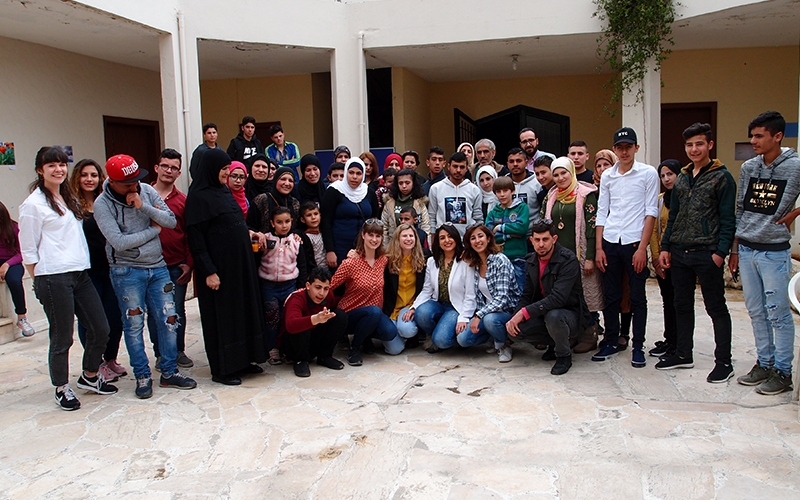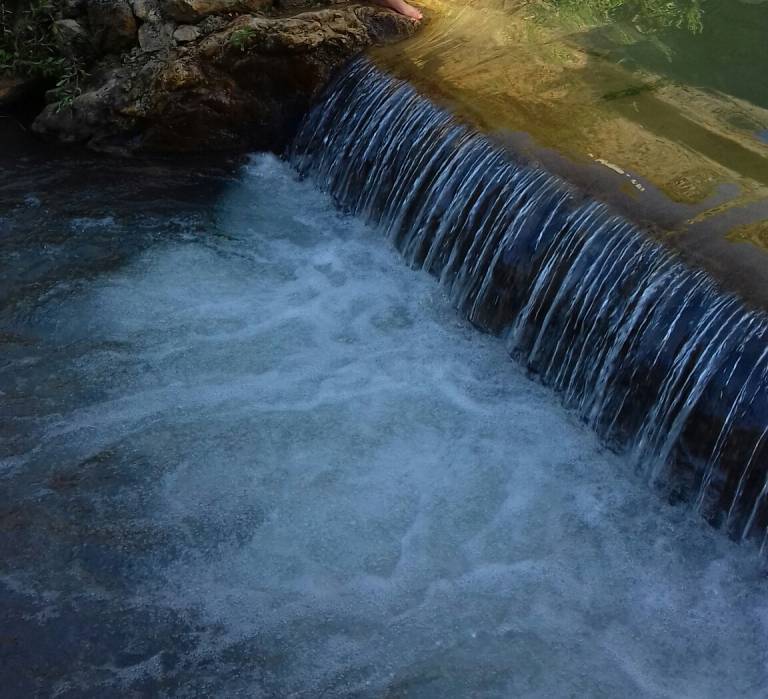Hannah Sender
PhD student, Hannah Sender, reflects on her fieldwork on adolescent mental health in Bar Elias, Lebanon.

In Spring 2019, I conducted fieldwork with a team from UCL Global Health, American University of Beirut and design studio CatalyticAction in Bar Elias, Lebanon. We wanted to find out how young people’s wellbeing has been impacted by their personal experiences of moving to, and living in, Bar Elias. The research was supported by our local partners: Lebanese Union for People with Physical Disabilities (LUPD) and MultiAid Programmes (MAPs).
Over a fortnight, 30 young people from Syria, Lebanon and Palestine participated in interviews and photography workshops. They spoke with the team about their experiences of growing up in Bar Elias, and, in the case of many, of moving to Bar Elias from elsewhere. Young people told the team what supported them to have good mental health, and the things that adversely affect their mental health.
Over the last few months, myself and the team have been analysing the data from the interviews and workshops. This August, I had the opportunity to meet with our local partners and with some of the young people we interviewed, and share our initial findings with them.
We discussed the major themes of the research, including what mental health means for young people in Bar Elias, and what impacts their mental health. I presented a mapping of the local providers of mental health services, and findings from interviews with service providers. The participants gave me their feedback on the findings, offering their insights about the relative importance of themes, and how different generations have experienced the area and been affected by it.
I learned how Bar Elias had been considered a safe place to walk around, where it had been common to know one’s neighbours, and where public and natural spaces were abundant. This memory of the area starkly contrasted with the experiences of young people today. Such differences inform how parents guide the behaviour of their children into late adolescence.
The second half of the workshop was dedicated to discussing what we can do with the research findings to support young people’s wellbeing in Bar Elias. The participants focused on two efforts: to raise awareness among the community about the importance of talking about mental health, focusing on parents whose understanding is imperative to ensuring young people access services, and to deliver training to service providers on adolescent mental health.
Dr Miriam Orcutt from UCL Global Health will be returning for further work in Autumn this year. I am looking forward to seeing the teams again in Winter this year, and spending more time with them in 2020.
In the meantime, the team will be exhibiting the photographs from the fieldwork as part UCL’s It’s All Academic Festival on 5 October, where myself and my colleagues will reflect on the use of visual methods in Bar Elias. You can register for our reflections session at It’s All Academic here.

Osama - Adolescent Lives photography workshop, Bar Elias
This research is the result of a collaboration between American University of Beirut, CatalyticAction, UCL Global Health and UCL Institute for Global Prosperity. It has been funded, in part, by UCL Grand Challenges and a philanthropic donor, Marc Schoucair.
Top image credit: Ameen, 2019. View from Bar Elias
Fatemeh Sadeghi
30 May 2024 Feminists in the Global South have stepped out of the conventional territories of ‘women’s matters’ into more fund...